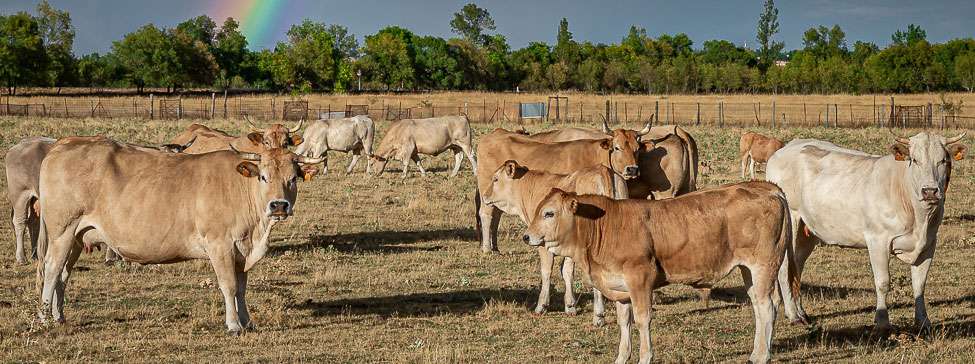New projects granted to the SALUVET group
18 sep 2020 - 17:21 CET
The SALUVET group has been awarded with two research grants from the Spanish Ministry of Science for the next 3 years. Both projects aim to improve the sustainability and competitiveness of the European agri-food sector by tackling three highly prevalent diseases caused by protozoan parasites and with marked negative impact on animal health, and in some cases, public health.
"Chemotherapeutic control of bovine besnoitiosis, BESTCONTROL, (PID2019-103960RB-I00)"
This project aims to investigate the chemotherapeutic control of bovine besnoitiosis. For this purpose two objectives are proposed. The first objective is to refine an experimental model of bovine besnoitiosis using in vitro-obtained bradizoites. As part of this, the Besnoitia besnoiti tachyzoite-bradizoite conversion will be studied for the first time under the conditions that have been shown effective to induce this conversion in other apicomplexan parasites. Transcriptomics will be used to elucidate the molecular mechanisms that affect the establishment of chronic infections. This research will help to develop a standardised and reproducible experimental model of bovine besnoitiosis suitable to assess therapeutic and vaccination candidates. The second objective is to investigate chemotherapeutic drugs for the control of bovine besnoitiosis. This will be done by in vitro screening of commercially available drugs that are licensed for other bovine diseases, but also with newly developed molecules. A new in vitro system will be standardised to assess the pharmacological activity of numerous candidates using genetically engineered B. besnoiti tachyzoites expressing the beta-galactosidase gene. Drug therapeutic targets and their mechanism of action will be investigated by electron microscopy and metabolomics. In addition, in order to investigate the efficacy of drugs that had shown promising activity in vitro, an in vivo test will be performed using the experimental model standardized in the previous objective
“Parasite and host pathways determining abortion or protection in Neospora caninum and Toxoplasma gondii infections in cattle and sheep, APICOMARKERS (PID2019-104713RB-C21)”
This is a joint project (SALUVET group, IGM-CSIC and Universidad de León) that aims to deepen in the interactions between N. caninum and T. gondii with the placenta by exploiting similarities between both parasites in their interaction with their ruminant hosts. This project consist of two main subprojects. The first one is focused on the study of the interaction between N. caninum virulence factors and the bovine innate immune responses. For this purpose, we will characterize potential virulence factors (study of their subcellular localization, gene knock-out, parasite fitness in target cells) and analyse their involvement in the modulation of innate responses in bovine macrophages through transcriptomics. We will also decipher the immunological host-parasite interactions at the maternal-foetal interface by identifying the differential local immune responses after in vivo infections with high and low virulence N. caninum isolates through transcriptomic and proteomic approaches. In addition, we will develop an ex vivo model of bovine placenta able to mimic the phenotypes observed in in vivo models of bovine neosporosis that will be exploited to dissect the mechanisms underlying the immune protection or the placental damage triggered by the parasite.
The second objective is focused on the study of the mechanisms that influence the pathogenesis of ovine toxoplasmosis, and aims the identification of biological markers for immune protection against abortion. To this end, we will analyse the role of the peripheral innate and trained immune responses on the initial control of T. gondii multiplication using neutrophils and macrophages. We will also define the peripheral and local immunological responses that are correlated with protection against Toxoplasma-induced abortion. To do that, we will characterize the peripheral immune response after oral challenge in vaccinated and naïve animals and analyse the immune microenvironment at the placenta after vaccination and challenged with different isolates. In addition, we will develop an ex vivo model of the ovine placenta able that will be used to dissect the mechanisms underlying the immune protection or the placental damage triggered by the parasite in pregnant sheep.
This joint project will improve the understanding of virulence and pathogenesis in neosporosis and toxoplasmosis and will also enable the identification of putative vaccine candidates able to induce protective immune responses without exacerbating immunopathology.

